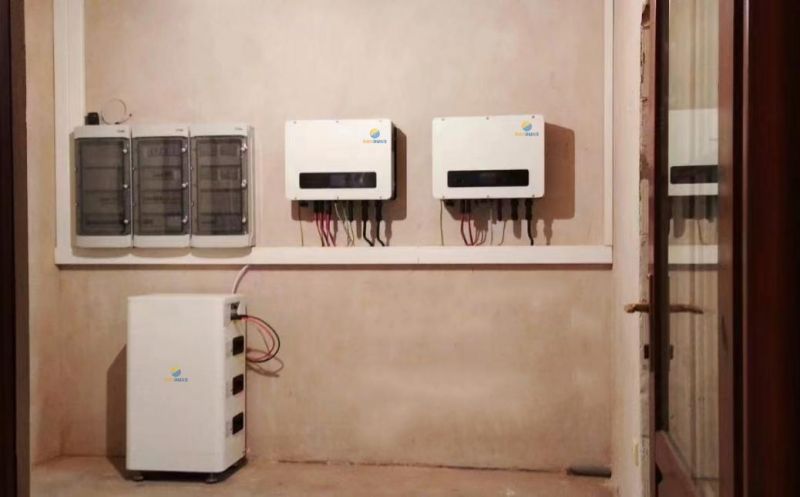Solar power systems have become increasingly popular in recent years as a clean and renewable source of energy. One of the key components of a solar power system is the solar inverter, which is responsible for converting the direct current (DC) produced by solar panels into alternating current (AC) that can be used to power electrical devices.
However, it is important to understand that a solar inverter requires sufficient battery charge to start up and operate effectively. If the batteries connected to the solar inverter are completely dead or have a very low charge, the inverter may not be able to receive the necessary power to initiate its startup sequence, resulting in the system not operating at its optimum capacity.
For a solar power system to function properly, it is critical to ensure that the batteries connected to the solar inverter are adequately charged. This can be done by regularly monitoring the battery charge levels and taking appropriate measures to maintain them.
There are several factors that can affect the state of charge of the batteries connected to a solar inverter. One of the most important factors is the amount of sunlight available to the solar panels. Solar panels generate electricity when exposed to sunlight, and this electricity is stored in the batteries for later use. Therefore, it is important to install the solar panels in a location that receives maximum sunlight throughout the day.
In addition to the availability of sunlight, the capacity and condition of the batteries themselves play a critical role in maintaining their charge levels. It is important to select high quality batteries with sufficient capacity to store the electricity generated. Regular maintenance and periodic inspections are necessary to ensure that the batteries are in good condition and operating optimally.
To improve the performance of a solar power system, it is recommended to use a charge controller. A charge controller regulates the charge going into the batteries and prevents overcharging, which can lead to battery damage. It also helps to extend the life of the batteries and improve the overall efficiency of the system.
It is also worth mentioning that the performance of a solar inverter can vary depending on the brand and model. Therefore, it is crucial to choose a reliable and reputable brand when purchasing a solar inverter. In addition, consulting with a professional solar power system installer can provide valuable insight and guidance in selecting the right components for the system.
In summary, solar inverters require sufficient battery power to start and operate effectively. Considering factors such as sunlight and battery condition, monitoring and maintaining battery charge is critical to ensure the proper operation of a solar power system. The use of a charge controller is also an important consideration in optimizing system performance. With proper maintenance, solar power systems can provide clean, renewable energy for years to come.
Post time: Sep-13-2023
